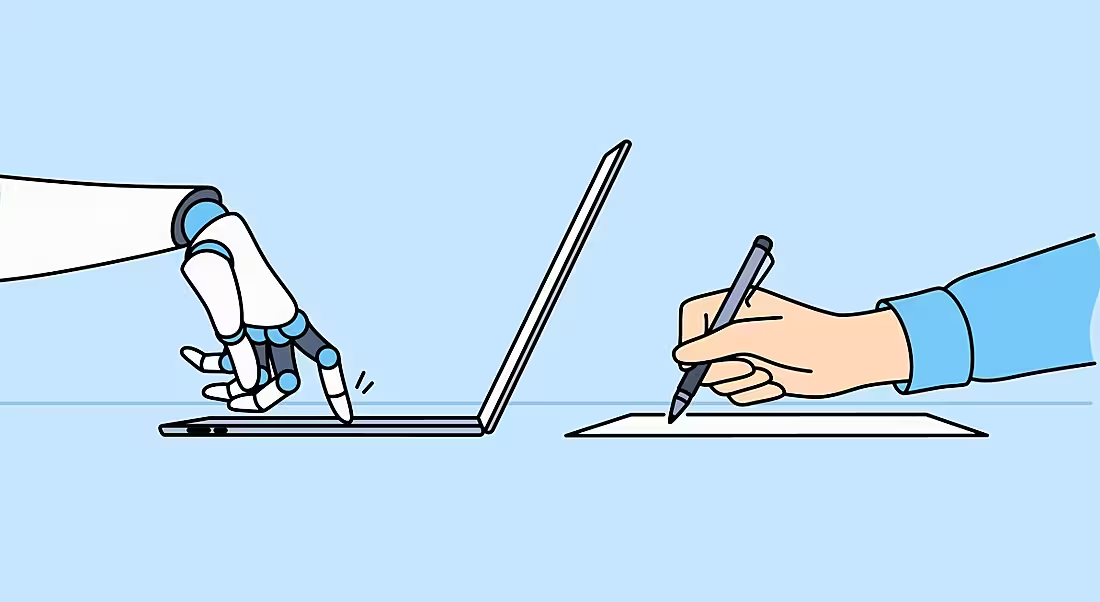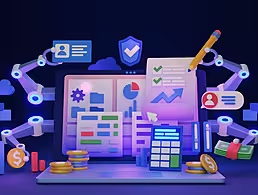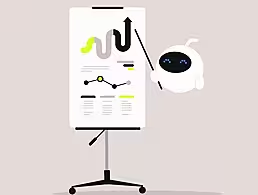AI is presenting an opportunity to boost productivity for various sectors, but will this journey to growth come at the cost of people’s jobs?
AI has caused a stir around the world for the benefits it can bring to organisations, but progress can come at a cost – in this case, an impact to jobs.
There have been national and international reports about the potential impact AI could have on the job market over the next decade. A report at the end of May suggests that generative AI alone could boost Ireland’s gross domestic product by between €40bn and €45bn in roughly 10 years. But it also warned that roughly 6pc of Irish jobs – roughly 160,000 positions – are expected to have more than half of their work activities displaced by the automation provided by AI.
These warnings mirror concerns shared by other reports about generative AI over the past couple of years. A Goldman Sachs report in 2023 predicted that up to 300m full-time jobs could be lost to generative AI worldwide. But both reports noted that automation replacing jobs would likely also lead to the creation of new roles and occupations.
But that fact may not help individuals who find their type of job being taken over by AI models. The previous reports suggested that certain sectors and job types are more at risk than others, such as clerical support roles.
To learn more about the potential AI has to help or hinder the job market, SiliconRepublic.com spoke to Michal Szymczak, the head of AI strategy at Cork-based consultancy company Zartis.
Recently, we’ve been refocusing and reshaping the company to address the AI needs that are happening around the market,” he said. “And we have lots of customers coming to us asking about those things.”
The cost of productivity
Szymczak believes that, overall, AI is not as much of a threat to jobs as certain reports make it seem and agrees with the idea that new jobs will be created as a result of this evolving technology.
“We believe jobs will not be lost as a headcount or it might be even an increase,” Szymczak said. “You know, there’s more of a transformation than a removal of positions. So we’ll be doing things differently with the help of AI.
“So we’ll be more performant. This way we can focus on things that actually matter and kind of pass on the mundane activities [such as] report writing and similar to AI.”
But he also noted that this “still doesn’t mean individuals won’t be affected” by the changes AI will bring. He presented this in a simple example – if AI hypothetically improved everyone’s work performance by 25pc, then in a team, the “fifth person” would no longer be required.
“So it’s very likely that individual, and multiply this by a number, will be affected one way or another,” he said. “ It’s not like they’re not going to be in the middle of this entire thing, but it’s very likely with time these jobs are just going to transform and lots of new ones are going to appear.”
But while AI is being presented as the threat to these jobs, Szymczak believes it is just one aspect of a simple reality – that “the world is speeding up”. As a result, there are individuals whose jobs will be at risk for multiple reasons, not just because of AI.
“So, whether that’s AI or another level of machine learning or another level of automation, or just a new person coming out of university with the excitement and the energy to do something and disrupt the particular team, you were always at risk,” Szymczak said.
“Your position was always at risk. Maybe your managers now have more reasons to think about changes. But from my perspective, everybody should at least consider looking at those tools, understanding them, and thinking practically, what are the use cases that apply to them?
“AI will not replace you, we say. But another human using AI, absolutely will.”
Learning new types of tools and technology might not be so simple for everyone however, especially if a certain type of job or sector is at risk of dramatic job reductions from a new technology. Meanwhile, recent surveys suggest many organisations are planning to reduce staff numbers by using AI in the next few years, so the new jobs that replace lost ones may take time to come to fruition.
Earlier this week, Thomas Deegan of Mackin EHS spoke about the rise of automation technology in certain sectors in Ireland and how they can present a way for businesses to reduce their labour costs massively.
“It’s one of those things that unfortunately, we’ve seen it over and over again in the past, that technology does remove jobs,” Deegan said. “But also, new jobs come out of that technology.”
A quicker path to seniority?
But its not all necessarily bad news – Szymczak also said AI has the potential to boost pathways in organisations, particularly by making it easier for entry-level employees to get up to speed and rise in a position.
“The way I’m looking at it is we’ll be bridging the gap between very experienced people and knowledgeable people who have been through a number of projects – whatever the industry – and those who are entering the job and just need, five, 10 years to become seniors,” he said.
“We’ll be bridging that way quicker, because first of all, now the AI can help those people get up to speed with those projects, get the gaps in their knowledge or experience addressed without the need for the senior ones to be overlooking the junior team members.”
AI is also presenting other opportunities for those entering the jobs market, with some tools on offer to help jobseekers ensure their applications make the most impact.
Find out how emerging tech trends are transforming tomorrow with our new podcast, Future Human: The Series. Listen now on Spotify, on Apple or wherever you get your podcasts.




